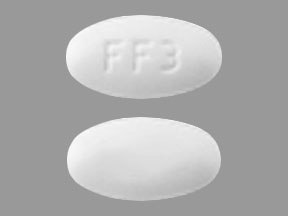
Lipitor Coupons & Savings Card – Discount Prices from $4.24
Brand for: Atorvastatin
My prescription
Edit
40MG, Atorvastatin (30 Tablets)
Select pharmacy

CVS
$19.17
COUPON PRICE
Walmart
$4.24
COUPON PRICE
Walgreens
$10.31
COUPON PRICE
Albertsons
$16.01
COUPON PRICELipitor savings card
Show this card to your pharmacist
Walmart
$4.24
BIN
ID
PCN
GRP
019876
LH569C64D9
CHIPPO
LHX
Powered by
Related statins prescriptions
More prescriptions for high cholesterol
Related statins prescriptions
More prescriptions for high cholesterol
Price history for Lipitor (brand) & Atorvastatin (generic)
30 Tablets, 20MG
Average retail price for Lipitor
Average retail price for Atorvastatin
Average SaveHealth price for Atorvastatin
Our price history data is based on aggregated prescription data collected from participating pharmacies in America. Our prescription data updates daily to reflect the latest price changes. If you notice a missing data point, it means there wasn't sufficient data available to generate a monetary value for that date.
Over the last 12 months, the average discount price of Lipitor is $6.28 using the SaveHealth savings card. That's an average savings of 99.07% on Lipitor with our discount card.
*Retail prices are based on pharmacy claims data, and may not be accurate when we don't have enough claims.
Lipitor (Atorvastatin) dosage forms
Dosage Quantity Price from Per unit 10MG 15 Tablets $2.97 $0.20 10MG 30 Tablets $3.45 $0.12 10MG 45 Tablets $3.92 $0.09 10MG 60 Tablets $4.40 $0.07 10MG 90 Tablets $11.84 $0.13 10MG 180 Tablets $19.64 $0.11 20MG 30 Tablets $3.68 $0.12 20MG 45 Tablets $4.26 $0.10 20MG 60 Tablets $4.85 $0.08 20MG 90 Tablets $12.53 $0.14
| Dosage | Quantity | Price from | Per unit |
|---|---|---|---|
| 10MG | 15 Tablets | $2.97 | $0.20 |
| 10MG | 30 Tablets | $3.45 | $0.12 |
| 10MG | 45 Tablets | $3.92 | $0.09 |
| 10MG | 60 Tablets | $4.40 | $0.07 |
| 10MG | 90 Tablets | $11.84 | $0.13 |
| 10MG | 180 Tablets | $19.64 | $0.11 |
| 20MG | 30 Tablets | $3.68 | $0.12 |
| 20MG | 45 Tablets | $4.26 | $0.10 |
| 20MG | 60 Tablets | $4.85 | $0.08 |
| 20MG | 90 Tablets | $12.53 | $0.14 |
| 20MG | 180 Tablets | $20.49 | $0.11 |
| 40MG | 30 Tablets | $4.24 | $0.14 |
| 40MG | 45 Tablets | $5.11 | $0.11 |
| 40MG | 60 Tablets | $5.97 | $0.10 |
| 40MG | 90 Tablets | $14.21 | $0.16 |
| 40MG | 180 Tablets | $22.45 | $0.13 |
| 80MG | 15 Tablets | $3.83 | $0.26 |
| 80MG | 30 Tablets | $5.16 | $0.17 |
| 80MG | 45 Tablets | $6.49 | $0.14 |
| 80MG | 60 Tablets | $7.82 | $0.13 |
| 80MG | 90 Tablets | $16.97 | $0.19 |
| 80MG | 180 Tablets | $27.98 | $0.15 |
What is the most common side effect of Lipitor?
The most common side effect of Lipitor (atorvastatin) is muscle pain.
What Lipitor is used for?
Lipitor is used to lower cholesterol levels in the blood. It helps reduce the risk of heart disease, heart attacks, and strokes by decreasing the levels of "bad" cholesterol (LDL) and triglycerides while increasing "good" cholesterol (HDL).
What should I avoid while taking Lipitor?
While taking Lipitor, it is advisable to avoid consuming large amounts of grapefruit or grapefruit juice, as it can increase the risk of side effects. Additionally, one should avoid excessive alcohol consumption, as it can increase the risk of liver damage. It is also important to inform the healthcare provider about all other medications being taken to avoid potential interactions.
Which is the most serious side effect of atorvastatin (lipitor)?
The most serious side effect of atorvastatin (Lipitor) is the risk of rhabdomyolysis, a condition that involves severe muscle damage and can lead to kidney failure. If a patient experiences unexplained muscle pain, tenderness, or weakness, especially if accompanied by fever or dark-colored urine, they should seek medical attention immediately.
Can you eat bananas while taking Lipitor?
Yes, it is generally safe to eat bananas while taking Lipitor (atorvastatin). There are no known interactions between bananas and Lipitor. However, patients should always follow their healthcare provider's dietary recommendations and discuss any concerns with them.
